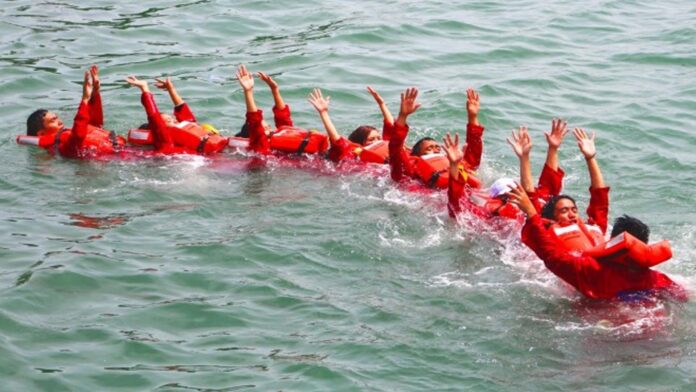The Philippine government and the European Union (EU) have launched a technical assistance project to improve seafarers’ training, education and working conditions nationwide.
“The European Union is partnering with the Philippines to improve and sustain the quality of the country’s system of maritime education, training and certification, and of recruitment and placement of seafarers for the benefit of its people, economy and of ultimately also of global trade,” EU Ambassador to the Philippines Massimo Santoro said in a news release on Monday.
EU Waterborne Transport director Fonti Ioannidou said the initiative aims to further strengthen the country’s education, training, and certification system for seafarers while demonstrating the solid partnership between Philippine authorities and the EU.
“The project will not only bring mutual benefits to both the Philippines and the EU but also contribute positively to the global shipping industry, recognizing Filipino seafarers as a cornerstone of the maritime workforce worldwide,” she added.
The project. which will run until November 2027, will support Filipino seafarers who can continue working abroad and under good labor conditions.
Seafarers need to have properly recognized certifications to be able to work worldwide.
The shipping sector is a key pillar of the Philippine economy, substantially contributing to the country’s gross domestic product (GDP).
In 2022, the industry directly accounted for 4 percent of the Philippine GDP, with seafarers’ remittances adding another 1.7 percent.
The Philippines is a leading supplier of maritime talent with approximately 1.15 million seafarers or 25 percent of the global seafaring workforce.
Key Philippine institutions collaborating on the project include the Department of Transportation (DOTr), Maritime Industry Authority (MARINA), Commission on Higher Education, Maritime Higher Education Institutions and the Philippine Coast Guard.
MARINA is in charge of overseeing and implementing the International Convention on Standards of Training, Certification, and Watchkeeping for Seafarers and the Maritime Labour Convention of the International Labour Organization.
DOTr Secretary Jaime Bautista said the Magna Carta of Filipino Seafarers ensures the protection and benefits of the country’s highly skilled mariners.
“We must welcome the assistance of the European Union at strengthening the education, training and certification of our seafarers who remain the top choice as crew of the global shipping industry,” he said.
The project forms part of the EU-ASEAN Sustainable Connectivity Package (SCOPE) with a total budget of EUR60 million (PHP3.75 billion).
It addresses several shared connectivity priorities to strengthen economic and cultural ties between the EU and the Association of Southeast Asian Nations.
The EU-ASEAN SCOPE is included in the larger Global Gateway initiative, the European strategy engaging with partners globally and promoting investments around shared priorities such as the transition to a green economy, renewable energy and green hydrogen, education and research, and digital infrastructure, among others. (PNA)






